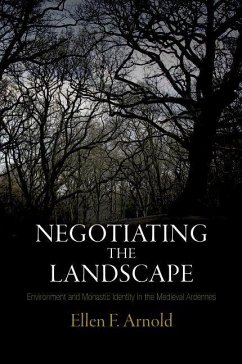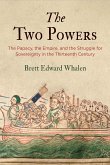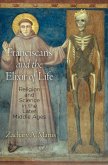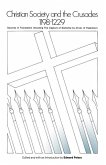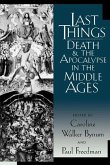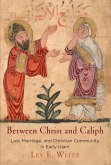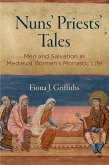Negotiating the Landscape explores the question of how medieval religious identities were shaped and modified by interaction with the natural environment. Focusing on the Benedictine monastic community of Stavelot-Malmedy in the Ardennes, Ellen F. Arnold draws upon a rich archive of charters, property and tax records, correspondence, miracle collections, and saints' lives from the seventh to the mid-twelfth century to explore the contexts in which the monks' intense engagement with the natural world was generated and refined.
Arnold argues for a broad cultural approach to medieval environmental history and a consideration of a medieval environmental imagination through which people perceived the nonhuman world and their own relation to it. Concerned to reassert medieval Christianity's vitality and variety, Arnold also seeks to oppose the historically influential view that the natural world was regarded in the premodern period as provided by God solely for human use and exploitation. The book argues that, rather than possessing a single unifying vision of nature, the monks drew on their ideas and experience to create and then manipulate a complex understanding of their environment. Viewing nature as both wild and domestic, they simultaneously acted out several roles, as stewards of the land and as economic agents exploiting natural resources. They saw the natural world of the Ardennes as a type of wilderness, a pastoral haven, and a source of human salvation, and actively incorporated these differing views of nature into their own attempts to build their community, understand and establish their religious identity, and relate to others who shared their landscape.
Hinweis: Dieser Artikel kann nur an eine deutsche Lieferadresse ausgeliefert werden.
Arnold argues for a broad cultural approach to medieval environmental history and a consideration of a medieval environmental imagination through which people perceived the nonhuman world and their own relation to it. Concerned to reassert medieval Christianity's vitality and variety, Arnold also seeks to oppose the historically influential view that the natural world was regarded in the premodern period as provided by God solely for human use and exploitation. The book argues that, rather than possessing a single unifying vision of nature, the monks drew on their ideas and experience to create and then manipulate a complex understanding of their environment. Viewing nature as both wild and domestic, they simultaneously acted out several roles, as stewards of the land and as economic agents exploiting natural resources. They saw the natural world of the Ardennes as a type of wilderness, a pastoral haven, and a source of human salvation, and actively incorporated these differing views of nature into their own attempts to build their community, understand and establish their religious identity, and relate to others who shared their landscape.
Dieser Download kann aus rechtlichen Gründen nur mit Rechnungsadresse in A, D ausgeliefert werden.
Hinweis: Dieser Artikel kann nur an eine deutsche Lieferadresse ausgeliefert werden.

